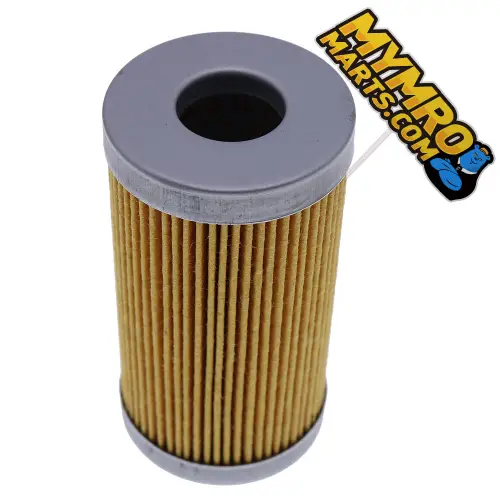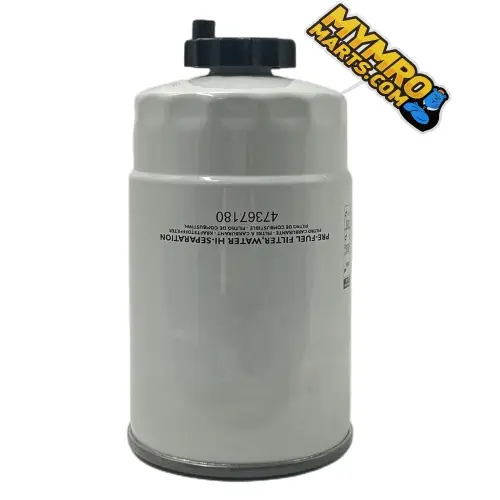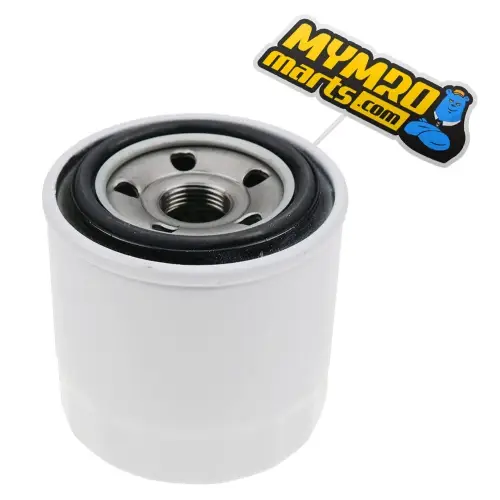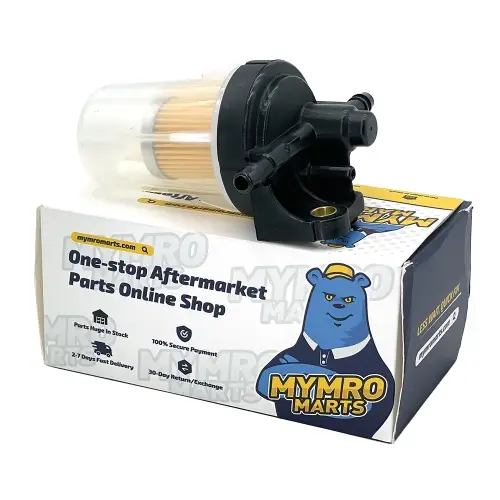New Holland Tractor Fuel Problems and Solutions
New Holland tractors are well-known in the agricultural machinery market for their durability and versatility. However, as the years of use increase and the use environment diversifies, some users will encounter problems with the fuel system. These problems will affect the performance of the tractor and also affect the normal operation of the farmland. In this article, MyMROmarts will explore the common fuel problems of New Holland tractors in detail and provide effective solutions. MyMROmarts can also provide you with New Holland aftermarket parts when you need to replace fuel system parts for your equipment.
Common New Holland Tractor Fuel Problems
1. Fuel Filter Clog
The fuel filter is an essential component in preventing impurities from entering the fuel system. If the New Holland fuel filter is not replaced for a lengthy time, it will clog. This will affect the fluidity of the fuel, which in turn will affect the engine's capacity to operate correctly. Typical symptoms include decreased engine power, difficulty starting, and increased fuel consumption.
2. Fuel Pump Failure
The fuel pump is responsible for delivering fuel from the tank to the engine. If the fuel pump fails, the fuel delivery is not smooth and the engine will not get enough fuel for combustion. This situation will cause the tractor to fail to start or suddenly stall during operation.
3. Fuel Line Leakage
Fuel line leakage is another common problem. Due to aging or improper installation of the pipeline, the fuel line will crack or loosen, causing fuel leakage. This not only wastes fuel but also poses a fire hazard.
4. Fuel Quality Problems
Low-quality or contaminated fuel can also affect the tractor's fuel system. Using inferior fuel will cause increased carbon deposits in the engine and clogging of the fuel injectors.
Effective Ways to Solve New Holland Tractor Fuel Problems
1. Regularly Replace the Fuel Filter
To keep the fuel system unobstructed, the fuel filter should be regularly checked and replaced according to the maintenance cycle recommended by the specialist. Generally speaking, it is more appropriate to check it every 500 hours or at the end of each season.
In the MyMROmarts store, you can also buy a New Holland tractor fuel filter.
2. Check and Maintain the Fuel Pump
Check the working condition of the fuel pump regularly to ensure that it is operating properly. If the fuel pump is found to be working abnormally, it should be repaired or replaced in time. At the same time, pay attention to the cleanliness around the fuel pump to prevent impurities from entering.
3. Check the Fuel Line Regularly
Check the fuel line regularly for cracks or aging. Especially in winter, low temperatures will make the rubber tube brittle and more prone to rupture. If problems are found, the damaged pipe should be repaired or replaced immediately.
4. Choose High-Quality Fuel
Choose a reputable supplier and use high-quality fuel. High-quality fuel can not only improve engine performance but also extend the service life of various components of the fuel system. In addition, pay attention to the cleanliness of the fuel barrel when refueling to prevent impurities from entering the fuel tank.
5. Clean the Fuel System
If the fuel system is found to be contaminated, the fuel system should be cleaned in time. You can use a special fuel system cleaner and professional tools to clean the fuel lines, fuel injectors, and fuel pumps to restore the normal working state of the system.
6. Deal with Moisture Problems in Time
Moisture is the fuel system's silent killer. Fuel that has been contaminated with water will lose quality and possibly corrode the parts of the fuel system. Regularly checking for water deposits at the bottom of the fuel tank and timely removal is advised.
 Track Your Order
Track Your Order








